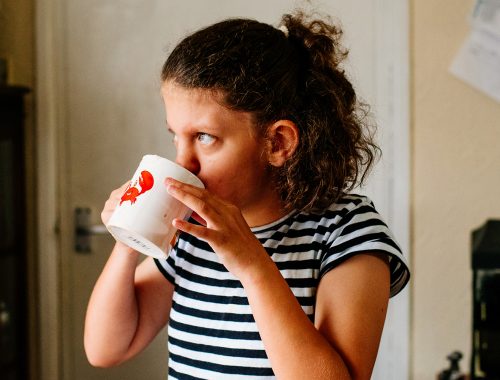Help with caring for a disabled child
Caring for a child with additional needs can feel overwhelming, but you are not alone. Below are useful resources and trusted organisations that can support you and your family.

See the organisations below, for help with caring for a disabled child.
Financial support for carers
Our interactive guide for carers
We have created an online interactive information guide to help families caring for a disabled child. This covers all the benefits, grants and organisations that provide financial support for carers.
Information and guidance for carersIf you are a full-time carer for someone receiving disability benefits, you might be eligible to apply for carers allowance. The current rate for this allowance is £76.75 a week.
Find out more and visit the GOV.UK website.
Where to go for support as a carer
As a carer looking after a disabled or seriously ill family member, or friend, with additional support needs, having access to helpful resources and organisations can make a big difference.
Contact is a support charity for families with disabled children, helping parents and carers to feel confident and informed on the challenges of raising a disabled child. They provide guidance and advice on topics such as benefits, education, health and social care services. Contact also offer a free listening ear service, providing one-to-one telephone appointments with a family support adviser. This is for parent carers looking for a listening ear, reassurance and practical and emotional support.
Call 0808 808 3555 (Monday to Friday, 9:30am to 5:00pm) or visit the Contact website.
Carers Trust is a charity that works for, and supports, all carers in the UK. They provide services for anyone who cares for a family member, or friend, who is ill, frail, disabled or has a mental health condition. Visit the Carers Trust website.
If you’re a carer you can request an assessment from your local adult social care team. This might recommend extra support for you, including respite, help with taxi fares or gym memberships to relieve stress. During the assessment, the team may also signpost you to local support groups.
In England, you can find out more about carers’ assessments and find your local adult social care service on the NHS website.
In Scotland, Wales and Northern Ireland, find out how to get an assessment in your home country on the Carers UK Website.
Support with your child’s disability
The National Autistic Society is the UK’s leading charity for people on the autism spectrum and their families. They provide support, guidance and advice and campaign for improved rights and services, to help create a society that works for people with autism.
Call 0207 833 2299 (Monday to Friday, 9:00am to 12:00pm and 1:00pm to 3:00pm). Or visit the National Autistic Society website.
RNIB is the UK’s leading sight-loss charity and the largest community of blind, and partially sighted people. Find information, products and services that support blind, and partially sighted children and young people, their families and professionals throughout the UK. This includes children and young people with additional disabilities and complex needs.
Call 0303 123 9999 (Monday to Friday, 8:00am to 8:00pm and Saturdays 9:00am to 1:00pm) or visit the RNIB website.
The Sleep Charity provides advice and support to help families get a better night’s sleep. They offer workshops, clinics and online resources. You can find a range of online resources to support your child or teenager’s sleep, on the sleep charity website.
Or by calling 03303 530 541 (Sunday, Monday, Tuesday, Thursday 7:00pm to 9:00pm and Wednesday 9:00am to 11:00am).
Sibs exists to support people who are growing up with, or have grown up with, a disabled brother or sister. This is the only UK charity representing the needs of over half a million young siblings, and over one and a half million adult siblings.
Mencap works to improve the lives of people with learning disabilities. They support family members who care for an individual with a learning disability. They have online resources available- from benefits and getting support with everyday living, to mental wellbeing and special educational needs.
Call 0808 808 1111 (Monday to Friday, 10:00am to 3:00pm) or visit the Mencap website.
Scope is a disability equality charity which campaigns for a fairer society and support for disabled people. They provide practical information and emotional support on disability.
Call 0808 800 3333 (Monday to Friday, 9:00am to 5:00pm) or visit the Scope website.
Designability provides design solutions to enable disabled people of all ages to be independent. Their support includes the Wizzybugs Early Years Powered Wheelchairs, which are free on loan for children from 14 months to approx. age 5. You can find out more about Wizzybugs and apply to the scheme by visiting the Designability website.
Leonard Cheshire provide support to people with disabilities to live, learn and work as independently as they choose whatever their ability. They offer a range of services including residential, supported living, therapy suites and social activities.
Visit the Leonard Cheshire website
Support for parents raising children with life-limiting or terminal illness
Rainbow Trust Children’s Charity supports families who have a child aged 0-18 years with a life-threatening or terminal illness. They have eight care teams of Family Support Workers in nine locations across the UK who provide emotional and practical support for families at home, at hospital and in the community. Online Support Team also provide support to families no matter where they live across the UK.
Together for Short Lives provides information and local support for families, carers of children with life-threatening and life-limiting conditions.
Marie Curie is the UK’s leading end of life charity. They provide frontline nursing and hospice care, a free support line and information and support on all aspects of terminal illness.
